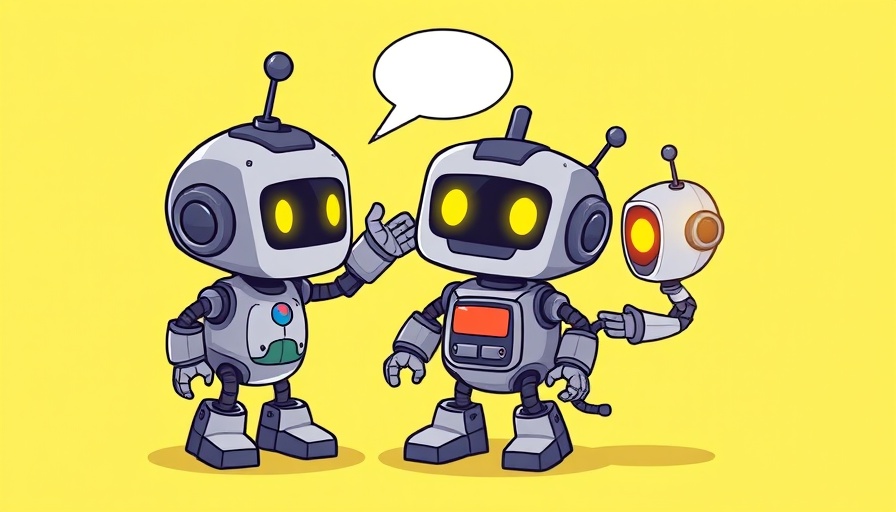
Understanding Manus AI: A New Benchmark in Autonomous Technology
Just days after its release, the new Chinese AI agent Manus has triggered both excitement and caution in the tech community. Marketed as a "general AI agent that turns your thoughts into actions," Manus exemplifies a significant leap in human-AI interaction. The chief scientist of Manus, Yichao "Peak" Ji, describes it as a paradigm shift in automation, invoking comparisons to DeepSeek, a previous landmark AI model. But what truly sets Manus apart from both its predecessors and competitor technologies in the West?
What Makes Manus Stand Out?
Unlike traditional chatbots and linear workflows, Manus operates as a fully autonomous entity capable of managing multi-task operations simultaneously. It can analyze resumes, map correlations in stock data, and even assess real estate options like an all-in-one assistant, performing tasks that typically involve several human workers. This innovative capacity for independent decision-making signals a future where AI systems could take over more complex roles in various industries, radically reshaping job markets and productivity benchmarks.
Comparison to DeepSeek: Strengths and Weaknesses
The introduction of Manus raises questions reminiscent of the impact DeepSeek had upon its launch. Both tools serve as examples of China's growing prowess in AI technology. However, Manus claims to be more than just a competitor; it's positioned as a transformative agent that shifts from a responsive role to an independent action-taking one. Unlike DeepSeek, which operates primarily within established guidelines, Manus’ open-ended capabilities have sparked intense discussions on ethical implications and privacy concerns.
Concerns on Privacy and Data Security
Manus runs in a cloud environment, bringing forth significant questions regarding data security. Experts like Luiza Jarovsky have raised flags about its operational integrity, with a focus on server locations, data handling practices, and the potential for data transfers to China. As AI tools increasingly interlace with our personal and professional data, these questions have never been more pressing.
The Implications of AI Autonomy on Society
The emergence of Manus AI as a self-directed agent prompts profound societal considerations. Autonomous agents can respond to complex directives without user prompts, echoing statements made in a recent Hugging Face paper advocating against developing fully autonomous systems. Critics argue that without checks and balances, the unchecked capabilities of systems like Manus could lead to significant risks, including wrongful decisions that carry tangible repercussions.
Future Predictions: AI Agents and Workforce Transformation
As Manus leads the charge into a potentially autonomous future, the implications for the job market are substantial. With its capacity to execute multifaceted tasks, Manus may replace roles traditionally filled by humans, posing a direct challenge to sectors reliant on manual data processing and creative problem-solving. This raises the larger question: how will economies adapt to a landscape where intelligent agents surpass human capabilities in efficiency and accuracy?
Actionable Insights for AI Enthusiasts
For those captivated by the development of AI technologies, the advent of Manus offers essential lessons. Monitoring its journey will provide insights into how AI governance evolves in response to rising autonomy. Engaging with AI discussions, questioning ethical ramifications, and advocating for clear regulatory frameworks can empower enthusiasts to contribute meaningfully to the dialogue surrounding emergent technologies.
Conclusion: Where Do We Go From Here?
As Manus continues its invitation-only testing, its influence on both the AI landscape and global competition is palpable. The intersection of advanced AI technologies and human roles will demand careful navigation moving forward. For AI enthusiasts, the onus lies in staying informed, discussing privacy implications, and contributing to dialogues that shape the regulatory environments influencing AI's future. The era of autonomous AI agents is here, and with it, the responsibility to ensure its development benefits society as a whole.
 Add Row
Add Row  Add
Add 




 Add Row
Add Row  Add
Add 

Write A Comment